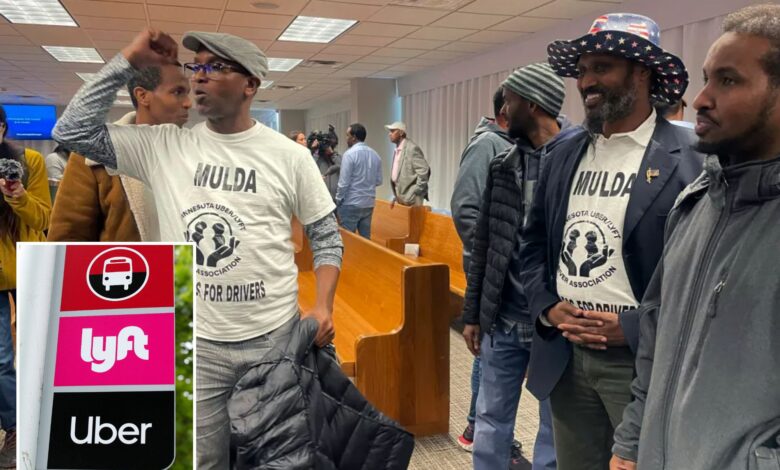Lyft, Uber plan to leave Minneapolis after city council forces them to hike driver pay

Lyft and Uber said they will cease operations in Minneapolis after the city’s council voted Thursday to override a mayoral veto and require that ride-hailing services increase driver wages to the equivalent of the local minimum wage of $15.57 an hour.
Lyft called the ordinance “deeply flawed,” saying in a statement that it supports a minimum earning standard for drivers but not the one passed by the council.
“It should be done in an honest way that keeps the service affordable for riders,” Lyft said. “This ordinance makes our operations unsustainable, and as a result, we are shutting down operations in Minneapolis when the law takes effect on May 1.”
Uber did not immediately respond to a request for comment, but news outlets reported that it issued a similar statement saying it would also stop service that day.
Both companies promised to push for statewide legislation that would counter the Minneapolis ordinance, and state House Republicans proposed a bill Thursday that would preempt local regulations of ride-hailing services.
The City Council first passed the measure last week in a 9-4 vote despite Mayor Jacob Frey’s promise to veto it. The measure requires ride-hailing companies to pay drivers at least $1.40 per mile and $0.51 per minute for the time spent transporting a rider — or $5 per ride, whichever is greater — excluding tips. In the event of a multi-city trip, that only applies to the portion that takes place within Minneapolis.
Critics of the bill say costs will likely spike for everyone, including people with low incomes and people with disabilities who rely on ride-hailing services. Supporters say the services have relied on drivers who are often people of color and immigrants for cheap labor.
Democratic Gov. Tim Walz, who vetoed a bill last year that would have boosted pay for Uber and Lyft drivers, told The Associated Press on Wednesday that he was concerned because so many depend on those services, including disabled people.
He said he believed the companies would pull the plug, “and there’s nothing to fill that gap.”
Walz added that he hopes the Legislature will seek a compromise that both includes fair pay for drivers and dissuades the companies from leaving.
Seattle and New York City have passed similar policies in recent years that increase wages for ride-hailing drivers, and Uber and Lyft still operate in those cities.




